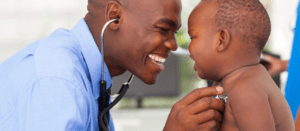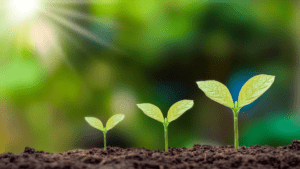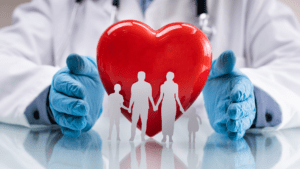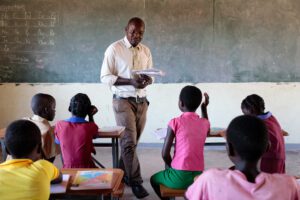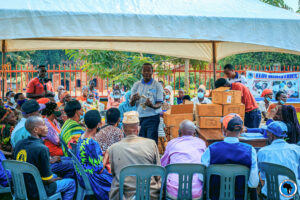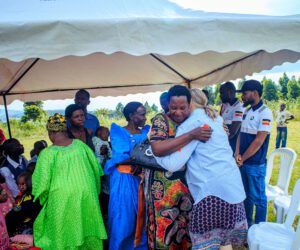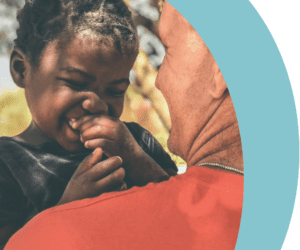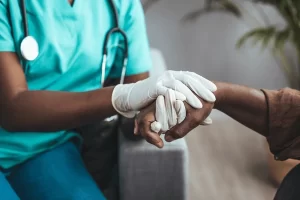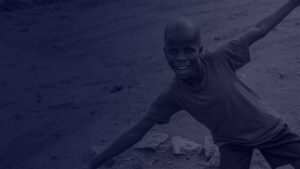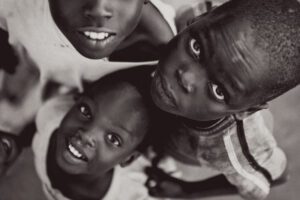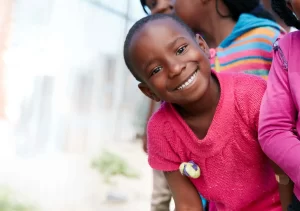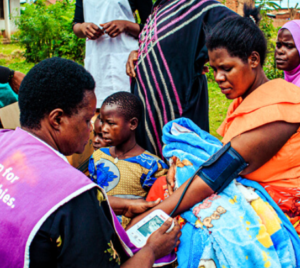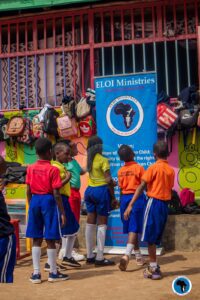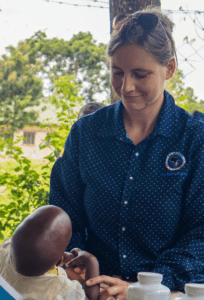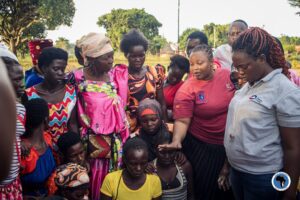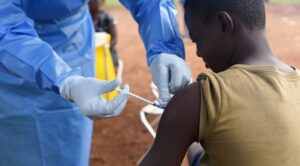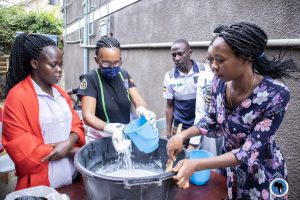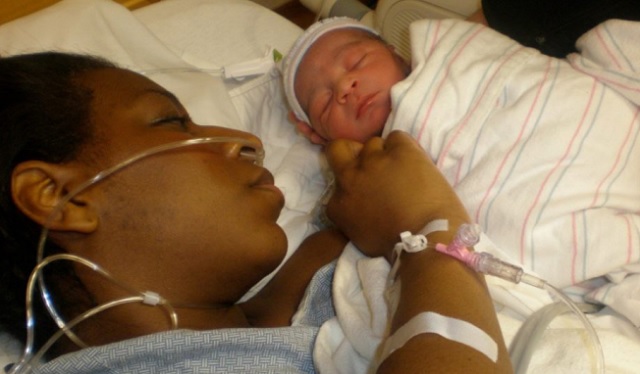
Improvements could add years to life and life to years – and potentially boost the global economy by $1 trillion
ANALYSIS | MELODY CHIRONDA | Maternal health, which refers to the health of women during pregnancy, childbirth, and the postpartum period, according to WHO Africa, faces a troubling trend worldwide.
Seven in 10 of maternal deaths occur in sub-Saharan Africa. An estimated 287,000 women globally lost their lives due to maternal causes, according to a report by the World Health Organization (WHO). The majority of these deaths, a staggering 70%, occur in sub-Saharan Africa. The major causes of these preventable deaths include pre-existing medical conditions that worsen during pregnancy, high blood pressure, unsafe abortions, excessive bleeding, obstructed labor, and infections.
A troubling trend in maternal health worldwide, according to WHO, is the death of a woman in childbirth or pregnancy roughly every two minutes. The UN agency warns that without significant progress towards Sustainable Development Goals (SDGs) global goals for reducing maternal mortality rates, over a million more women could tragically lose their lives by 2030.
“Despite global advancements, Africa continues to have disproportionately high maternal mortality rates. While the global average is 152 deaths per 100,000 live births, some African nations, including Chad, Nigeria, and South Sudan, report rates exceeding 1,000 per 100,000 live births,” said Professor Samba Sow, former Minister of Health for Mali and currently Director General of the Center for Vaccine Development (CVD).
Sow said newborn deaths also remain alarmingly high in Africa.
In 2022, sub-Saharan Africa accounted for 57% of global under-5 deaths despite representing only 30% of global live births, reports WHO. The region also had the highest neonatal mortality rate in the world, with 27 deaths per 1,000 live births. This means that a newborn in sub-Saharan Africa is 11 times more likely to die within the first month of life compared to a newborn in the safest regions, such as Australia and New Zealand.
“When a mother dies in childbirth, the chance of her baby living to see their first birthday drops to 37%,” said Professor Sow. “We must address this issue urgently to accelerate progress toward the SDGs.”
More than just a funding issue
Beyond funding limitations, several significant challenges hinder progress across Africa in maternal, newborn, and child health (MNCH) care.
“While it is true that MNCH and family planning products receive significantly less funding compared to other health areas, despite a greater burden of disease – about 3-5 times more – the challenges extend beyond just financial constraints,” he said.
“We don’t see coordinated product procurement through a defined global facility,” said Professor Sow. “This lack of coordination results in stockouts, higher prices, and limited access to essential supplies, severely impacting the availability of life-saving resources.”
“In many of our countries, we also deal with multiple and overlapping crises, including challenging economic situations with very little room for maneuver,” he added.
“To accelerate progress toward achieving the 2030 Sustainable Development Goals for neonatal and maternal mortality rates, our governments need to make investments that will bring outsized benefits to society and the economy. This means investing in primary healthcare systems, a fit-for-purpose health workforce, and innovative products that help us meet more women’s needs, bring care closer to home, and save the lives of women and babies,” said Professor Sow.
Improving outcomes
Global trends in maternal, neonatal, and child health (MNCH) have shown significant improvement, with a notable 34% decrease in maternal mortality between 2000 and 2020. However, this has been set back by the pandemic which affected progress, especially among low-and middle-income countries (LMICs), where almost 95% of all maternal deaths occurred in 2020.
Professor Sow said that targeted investments in MNCH play a crucial role in building a resilient healthcare system capable of sustaining long-term health improvements for mothers and newborns.
“In Mali, efforts to expand healthcare facilities and deploy mobile health units have brought critical services closer to those in need,” said Professor Sow. “This has significantly reduced the distance and time required to receive care.”
“We’ve also seen significant improvements in maternal and neonatal outcomes through the training of midwives and community health workers. These trained professionals can handle complications during childbirth and provide essential neonatal care, leading to better survival rates,” he said. “Midwives are the lynchpin of our efforts. They can provide 90% of women’s healthcare, and well-trained midwives working in a fully functional environment could help prevent two-thirds of all maternal and newborn deaths.”
Professor Sow said that educating communities about the importance of MNCH services and encouraging their use can also lead to better health outcomes, adding that in Mali, community health programs involving local leaders and using culturally sensitive approaches increased the acceptance and utilization of maternal and neonatal healthcare services.
Boost to economies
The McKinsey Health Institute, in collaboration with the World Economic Forum Centre for Health and Healthcare, unveiled groundbreaking research at Davos on the health and economic benefits of investing in women’s health. The report, titled “Closing the Women’s Health Gap: A $1 Trillion Opportunity to Improve Lives and Economies,” reveals that women spend 25% more time in poor health compared to men. The report found that addressing the women’s health gap could add years to life and life to years – and potentially boost the global economy by $1 trillion annually by 2040. The report estimates that women could gain an average of seven additional healthy days per year, translating to over 500 days throughout a woman’s lifetime.
“Healthy women are more likely to participate in the workforce,” said Professor Sow. “This increased participation boosts productivity and drives economic growth.”
“Why is this important at this precise moment?” he asks.
“Our economies are facing numerous challenges, and we simply can’t afford to lose women and children to poor health. This is a critical investment that will bring significant long-term dividends, with ripple effects that benefit all of us.”
Dr. Rasa Izadnegahdar, who leads the Maternal, Newborn, Child Nutrition, and Health portfolio within the Gender Equality Division at the Gates Foundation, said that leveraging innovative technologies and low-cost solutions holds immense potential for enhancing MNCH care, especially in remote regions. He says, “Nearly 80% of the maternal and neonatal burden is concentrated in 30 countries in Sub-Saharan Africa and South Asia. Too often, where you live and the quality of care you receive determines whether life begins or ends at childbirth.”
“Investments in innovations ranging from cutting-edge technologies to low-cost, high-impact solutions – tools like AI-enabled portable ultrasound, IV iron, multiple micronutrient supplements, and more – are propelling advancements in maternal and child health and can help bridge the current gap,” says Dr. Izadnegahdar.
A $4 Life-Saving Package
A landmark study published by researchers from the World Health Organization (WHO) and the University of Birmingham identified a potentially game-changing solution known as E-MOTIVE. This new approach could significantly reduce deaths from childbirth-related bleeding.
The four-country trial involved over 200,000 women and demonstrated a 60% reduction in severe bleeding after childbirth through a simple bundle of WHO-recommended medications costing only $4 per woman.
“There are 4-5 products, such as oxytocin, misoprostol, tranexamic acid, heat-stable carbetocin, and a calibrated drape, that a recent clinical trial involving over 200,000 women in Kenya, Nigeria, South Africa, and Tanzania showed a 60% reduction in heavy bleeding. These affordable products, costing around $4 for the full package, are recommended by the WHO, included in almost all countries’ essential medicines lists, and are well-known by providers,” Dr. Izadnegahdar said.
“Solutions like the simple and affordable tool called a ‘calibrated obstetric drape,’ used to address postpartum hemorrhage (PPH), are game-changers. This drape, together with the WHO-recommended treatment bundle, allows trained birth attendants to monitor and measure blood loss in real-time, helping them quickly identify PPH and potentially save lives,” said Dr. Izadnegahdar.
“Our analysis has shown that these interventions that tackle maternal mortality and neonatal mortality have the potential to avert about 1.9 million cumulative deaths in low- and middle-income countries by 2030, especially when offered in bundles,” he said.
Future goals
“We must invest in strong primary healthcare systems and tap into new constituencies and partnerships to maximize impact. Investments in primary healthcare systems and a trained, resourced healthcare workforce, including midwives, enhance the health system’s efficiency and improve health equity,” Dr. Izadnegahdar said. “We also need policymakers, the private sector, and philanthropists to partner together to fund existing women’s health products and push new products into pipelines.”
“If we invest in a robust health workforce, mobilize new funding for maternal care, and scale the use of proven tools, we can save the lives of 1,000 mothers every day – meaning two million lives saved by the end of the decade. That’s two million women who will go on to raise stronger families – families spared unimaginable heartbreak. Two million more women who will contribute to the economy, shape their communities, and enrich our world,” concludes Dr. Izadnegahdar.
Professor Sow concluded, “When women and girls have access to the healthcare and nutrition they need to remain healthy, the freedom to make reproductive choices, and the opportunity to pursue their ambitions, we unlock a cycle of prosperity that benefits everyone.”
Author:: Bagombeka Job



















